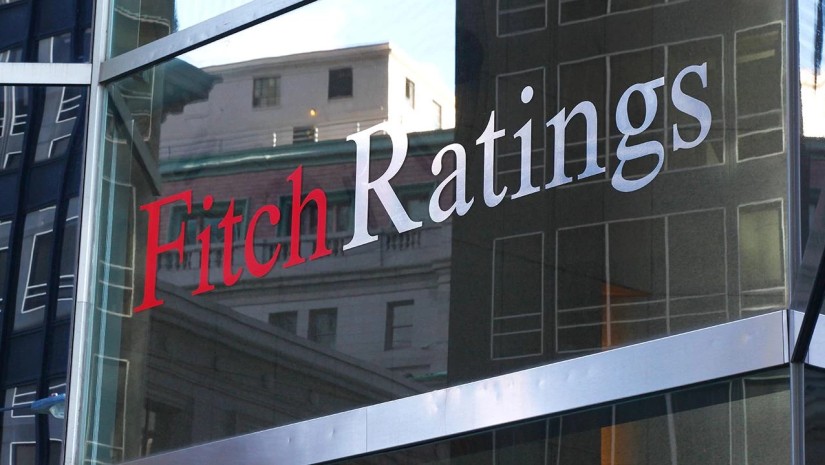Fitch Ratings has revised the Outlook on Georgia's Long-Term Foreign-Currency Issuer Default Rating (IDR) to Stable from Positive, and affirmed the rating at 'BB'.
The revision of the Outlook reflects the following key rating drivers and their relative weights:
High
Increased Political Risk: The introduction and final passage of a 'foreign influence transparency' law in May 2024 has led to increased political uncertainty, reflected in large-scale protests. Political tensions could intensify further in the run-up to parliamentary elections scheduled for October 2024. In Fitch's view, growing polarisation in society and weakened trust in public institutions will likely negatively affect Georgia's governance indicators, a long-standing strength relative to peers. The passage of the law has also sharply worsened relations with the EU and the US and could delay the EU accession process.
Medium
Weaker External Finances: International reserves declined to USD4.6 billion as of end-May 2024 from a peak of USD5.4 billion in August 2023, despite a broadly favourable macroeconomic backdrop. In Fitch's view, this reflects a wider current account deficit (CAD), higher net sovereign debt repayments and National Bank of Georgia (NBG) FX sales of USD168.7million to manage increased pressures on the lari (which has depreciated by 7% vs the US dollar following the foreign transparency law passage). Political uncertainty could maintain pressure on the lari and reserves through the election cycle.
Fitch expects FX coverage to average 2.6 months of current external payments in 2024-26, well below the projected 'BB' median of 4.8 months. Fitch forecasts the CAD to widen to 5.1% of GDP in 2024 and 2025, from 4.3% in 2023 (current 'BB' median: 1.8%), as extraordinary inflows of capital and migrants from Russia and Ukraine have largely dried up, and imports increase amid robust domestic consumption and investment demand. Fitch expects that foreign direct investment will almost entirely finance the CAD over the forecast horizon.
Weakening of Policy Framework: The precautionary IMF stand-by arrangement remains off-track and is unlikely to resume before the October elections. This is due to differences regarding reform of state-owned enterprises and delays in reform to strengthen the central bank's institutional independence. In Fitch's view, perceived risks to the independence of the NBG could erode policy credibility, potentially weakening the capacity of Georgia's small, open and dollarised economy to respond to external shocks effectively. Regulatory developments around sanctions implementation have also raised uncertainty for Georgian banks.
Georgia's BB IDRs also reflect the following rating drivers:
Moderate Government Debt Levels: General government debt (GGD) was 39.1% of GDP at end-2023, well below the current 'BB' median of 54%. The proportion of domestic debt has been increasing steadily to 28% of the total as of 1Q24 from 20% in 2021, in line with the authorities' strategy to gradually raise this to 35%. Fitch projects GGD/GDP to remain broadly stable at 41% of GDP in 2024-26 (well below the 60% debt ceiling), with exchange rate depreciation the largest risk to debt dynamics. About 90% of external debt is owed to bilateral and multilateral creditors on concessional terms.
Solid Budget Performance Record: Georgia has a strong record of overperforming versus budget targets, owing to stronger than projected revenue collection as well as capex under-execution. Fitch expects the general government deficit to narrow from 2.5% of GDP in 2023 and 2024 to 2.1% in 2025, well below the 3% deficit ceiling.
Strong GDP Growth: The large influx of Russian, Ukrainian and Belarusian migrants has resulted in a lasting value addition to the economy, including by boosting potential growth rates, notably in the ICT, construction, and hospitality sectors. Fitch expects growth to remain robust, at 5.8% in 2024 and an average of 5% in 2025-26, driven by domestic consumption and private and public sector investment.
Low, But Rising Inflation: Fitch forecasts inflation to rise above the NBG's 3% target, to 3.8% by end-2024 and 4.1% by end-2025, partly reflecting the impact of lari depreciation in 2024. The NBG has cut rates by a cumulative 150bp this year to 8% as of mid-June 2024, and Fitch expects monetary policy to be relatively tight until end-2025. Monetary policy transmission is impeded by relatively high levels of dollarisation.
Geopolitical Risks: Geopolitical risks related to Russia remain high, in the context of international scrutiny with regard to sanctions enforcement, and Georgia's stated aspirations to join NATO and the EU. Fitch does not expect the long-standing unresolved conflicts involving Russia in Abkhazia and South Ossetia to escalate in the medium term.
Stable Banking Sector, High Dollarisation: The Georgian banking sector is stable, with strong asset quality (non-performing loan ratio of 1.6% as of April 2024), high profitability (April: return on equity of 24%), and high capitalisation (Tier 1 capital ratio of 21.7% as of April). Dollarisation in deposits and lending remains relatively high in Georgia, at 49.4% and 44.7% as of April, respectively, although these levels are moderately declining. Macroprudential measures introduced by the NBG are intended to gradually reduce the level of FX lending growth, but this will take time to achieve.
RATING SENSITIVITIES
Factors that Could, Individually or Collectively, Lead to Negative
Rating Action/Downgrade
- Structural: Substantial worsening of domestic political or
geopolitical risks with adverse consequences for economic performance
or governance.
- Macro: A weakening of the macroeconomic policy framework that
undermines the monetary and/or fiscal policy anchors.
Factors that Could, Individually or Collectively, Lead to Positive
Rating Action/Upgrade
- External Finances: A reduction in external vulnerability, for
example, from a sizeable increase in international reserves and/or
narrowing in the current account deficit, potentially leading to the
removal of the -1 notch on external finances.
- Macro: Implementation of reforms that strengthen the policy
framework and reduce vulnerability to shocks over the medium term.
- Public Finances: A marked decrease in general government debt/GDP,
particularly if accompanied by a reduced share of FX-denominated debt
over the medium term.
















